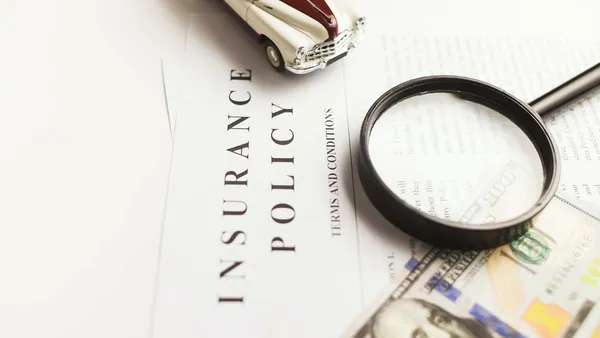When purchasing a vehicle, whether new or used, many car buyers are often faced with a range of auto insurance options. One of the more commonly recommended options is GAP insurance. If you’re financing or leasing a car, you may have heard about GAP insurance, but is GAP insurance required in Florida?
In this article, we will explain what GAP insurance is, how it works, whether it’s required in Florida, and whether you should consider it for your own situation. We’ll also answer some frequently asked questions to help clarify this important aspect of car insurance.
What is GAP Insurance?
GAP insurance (Guaranteed Asset Protection insurance) is a type of car insurance designed to protect drivers who owe more on their car loan or lease than the vehicle’s current market value. If your car is totaled or stolen, regular auto insurance will only pay out the actual cash value (ACV) of the vehicle. ACV is determined by the car’s current market value, which takes into account depreciation.
However, cars lose value quickly, especially during the first few years of ownership. In the unfortunate event that your car is totaled or stolen early in your loan or lease, you may find yourself in a situation where the payout from your insurance company isn’t enough to cover the remaining balance on your loan or lease. This is where GAP insurance comes into play.
GAP insurance covers the difference between what your primary insurance company pays out (the ACV of the car) and what you owe on the loan or lease. For example, if you owe $20,000 on your car but its market value is only $15,000, GAP insurance will cover the $5,000 difference.
Is GAP Insurance Required in Florida?
The short answer is no, GAP insurance is not required by law in Florida. Like many other states, Florida does not mandate GAP insurance as part of the state’s auto insurance requirements. However, this doesn’t mean it’s not an important consideration.
Florida’s Legal Insurance Requirements:
In Florida, the only car insurance requirements are:
- Personal Injury Protection (PIP): Florida is a no-fault insurance state, meaning all drivers must have PIP insurance, which covers medical expenses, lost wages, and other costs regardless of who is at fault in an accident. The state mandates a minimum of $10,000 in PIP coverage.
- Property Damage Liability (PDL): Drivers must also have at least $10,000 in Property Damage Liability insurance, which covers damages to other people’s property (such as their car or fence) in the event you cause an accident.
GAP insurance is optional in Florida, but it’s worth considering based on your specific situation, especially if you’re financing or leasing a new car.
When is GAP Insurance a Good Idea in Florida?
While GAP insurance isn’t required by law, there are specific situations where it’s highly recommended, especially if you’re purchasing or leasing a vehicle. Below are the key scenarios when GAP insurance makes sense:
1. When You Have a Car Loan or Lease
If you’re financing or leasing a car, your lender or leasing company may require you to carry GAP insurance. This is because lenders and leasing companies want to make sure their investment is protected in case of an accident or theft. Since cars depreciate quickly, GAP insurance helps ensure that the remaining loan balance is paid off, even if the car’s market value is lower than the loan amount.
2. If You Have a New Car
New cars lose value rapidly, and if you’re still paying off the loan for a new car, the chances are high that the car’s value will depreciate faster than your loan balance. In the first few years, your car could lose significant value, and if it’s totaled, you may owe more than the car is worth. GAP insurance helps cover that gap between the insurance payout and the loan balance.
3. If You Made a Small Down Payment
If you made a small down payment on your car (less than 20%), you’re more likely to owe more on the car than it’s worth, especially during the early years of the loan. In this case, GAP insurance can help protect you from financial loss if the car is totaled.
4. If You Have High Depreciation
Some cars depreciate faster than others, and if you’ve purchased a vehicle that has a high depreciation rate, GAP insurance can help cover the difference between the ACV and what you owe on your loan or lease. Luxury cars, for example, can experience rapid depreciation, which increases the likelihood that you will owe more than your car is worth.
5. If You Have a Long Loan Term
With longer loan terms, such as 72 months or 84 months, it can take longer to pay down the principal of your car loan. In the early years of the loan, a significant portion of your payments will go toward interest rather than reducing the principal balance. This means you may still owe a lot on the car, even if it has lost significant value. GAP insurance can help protect you in this situation.
How Much Does GAP Insurance Cost in Florida?
GAP insurance is generally quite affordable. The cost of GAP insurance in Florida varies depending on several factors, including the insurance provider, the value of your vehicle, and whether you’re purchasing it as an add-on to your existing auto insurance policy.
On average, GAP insurance can cost between $20 to $40 per year when purchased as part of your auto insurance policy. If purchased through the car dealership or lender at the time of purchase, it can be significantly more expensive, often costing between $500 and $700 for the entire loan term.
Some lenders and dealerships also offer Financed GAP Insurance, which is rolled into your loan, increasing the total amount you owe. While this might make it easier to finance the GAP insurance cost, it also means you’re paying interest on that coverage.
What Does GAP Insurance Cover?
GAP insurance covers the difference between your car’s actual cash value (ACV) and the amount you owe on your car loan or lease. If your car is totaled due to an accident or stolen, the primary insurance company will pay out the ACV, which is the car’s market value at the time of the accident. If the ACV is less than the balance of your loan or lease, GAP insurance covers the difference.
GAP Insurance Covers:
- The difference between the ACV and the loan balance: This is the key benefit of GAP insurance. It covers the gap that your regular insurance won’t pay.
- Total loss situations: If your car is totaled or stolen, GAP insurance will cover the remaining balance after the primary insurance payout.
What GAP Insurance Does Not Cover:
- Your car’s repairs: GAP insurance only covers the gap in the loan balance, not the repair costs if your car is not totaled.
- Personal injury: GAP insurance does not cover medical expenses or personal injury. For that, you need Personal Injury Protection (PIP).
- Non-collision damage: If your car is damaged in ways not covered by your regular auto insurance (such as theft or vandalism), GAP insurance doesn’t cover those damages.
Is GAP Insurance Worth It in Florida?
Whether GAP insurance is worth it depends on your personal circumstances. Here are some factors to consider:
- If you have a new or high-value car, GAP insurance is often a wise investment, as cars depreciate quickly and you might owe more than the car is worth early in the loan.
- If you’re financing or leasing a car, most lenders will require GAP insurance to protect their investment.
- If you made a small down payment or have a long-term loan, you may want to consider GAP insurance, as it helps protect against rapid depreciation.
- If you can afford to pay off the remaining balance in the event of a total loss, you might not need GAP insurance.
Frequently Asked Questions (FAQ) About GAP Insurance in Florida
1. Is GAP insurance required in Florida?
No, GAP insurance is not required by law in Florida. However, it may be required by your lender or leasing company if you’re financing or leasing a vehicle.
2. Do I need GAP insurance if I have full coverage?
Full coverage insurance typically includes both collision and comprehensive coverage, but it does not cover the gap between the car’s actual cash value (ACV) and the amount you owe. GAP insurance is necessary to cover that difference.
3. Can I cancel GAP insurance if I pay off my car loan early?
Yes, you can cancel GAP insurance if you pay off your car loan early, but it’s important to check with your insurer or dealership to find out about any potential refunds or fees.
4. How do I get GAP insurance?
GAP insurance can be purchased through your regular auto insurance company, a dealership, or your lender. It’s typically cheaper when added to your standard auto insurance policy, but it’s important to compare rates.
5. Does GAP insurance cover all types of loss?
GAP insurance only covers the difference between your car’s actual cash value (ACV) and the remaining balance on your loan or lease if your car is totaled or stolen. It does not cover repairs, injuries, or other damages.
Conclusion
While GAP insurance is not required in Florida, it is often a smart choice for those who are financing or leasing a car, especially if the car is new, has a high depreciation rate, or if you made a small down payment. It provides financial protection by covering the difference between your car’s value and what you owe on your loan or lease in the event of a total loss.
Before deciding, consider your specific circumstances, including your car’s value, loan terms, and financial situation, and determine if GAP insurance makes sense for you. While it’s optional, it could save you from a significant financial burden down the road.
Read more:
- Trump Ends Chinese Tariff Loophole, Raising the Cost of Online Goods
- What Insurance Does Tanner Medical Center Accept in Ohio?
- Is Bioidentical Hormone Replacement Therapy Covered by Insurance?
- How Trump May Unintentionally Cut Carbon Emissions
- Can I Add My Nephew to My Health Insurance? A Complete Guide
- Understanding Insurance Coverage for Biological Dentistry
- EP. 102: Bootstrapping Brilliance: Building a Tech Empire from the Ground Up




